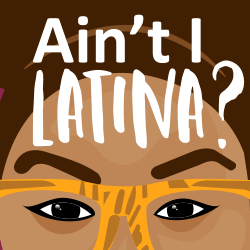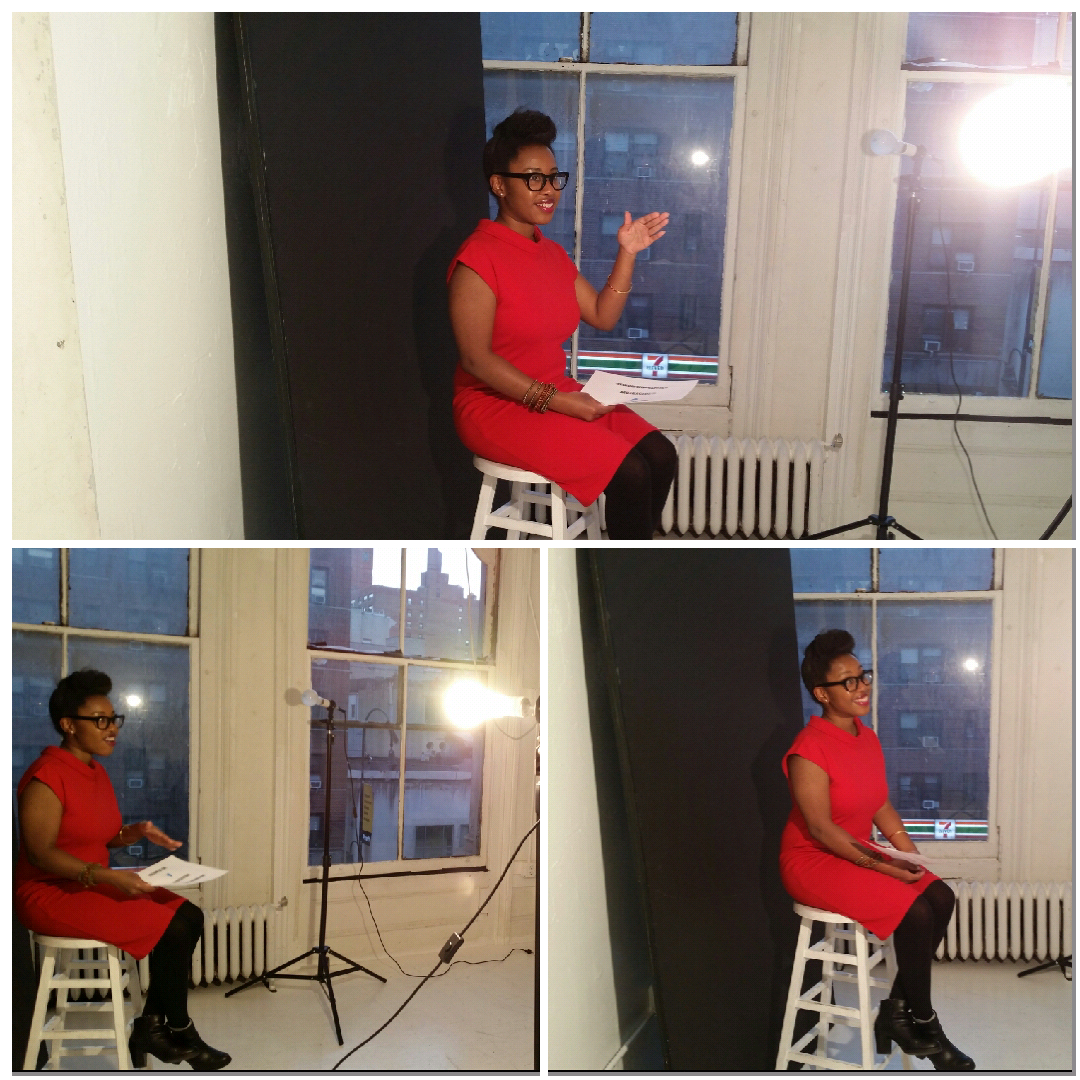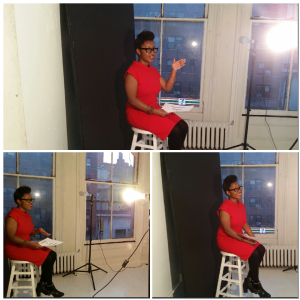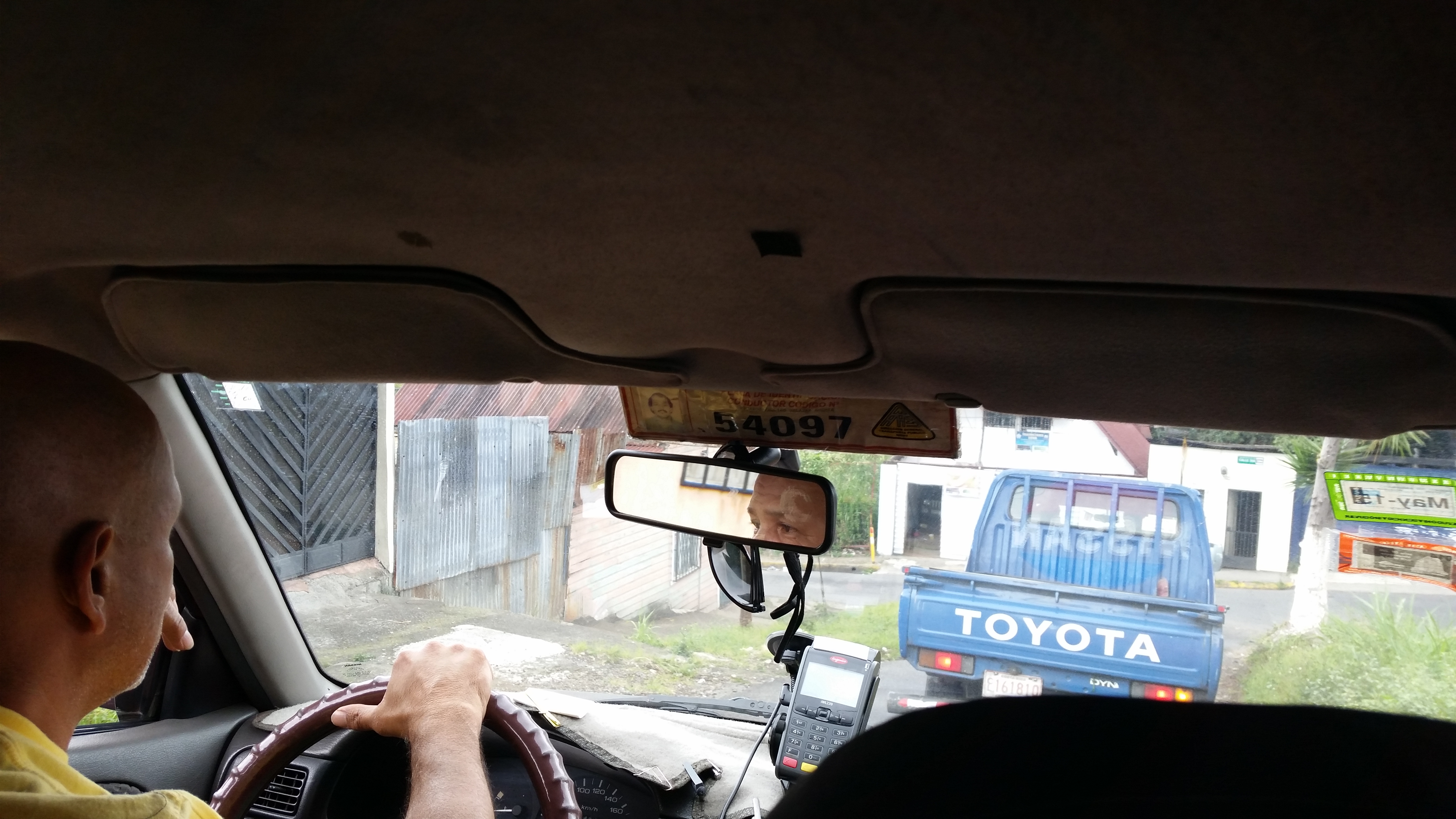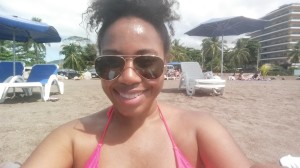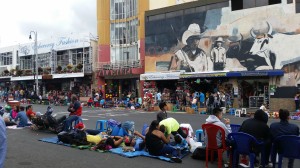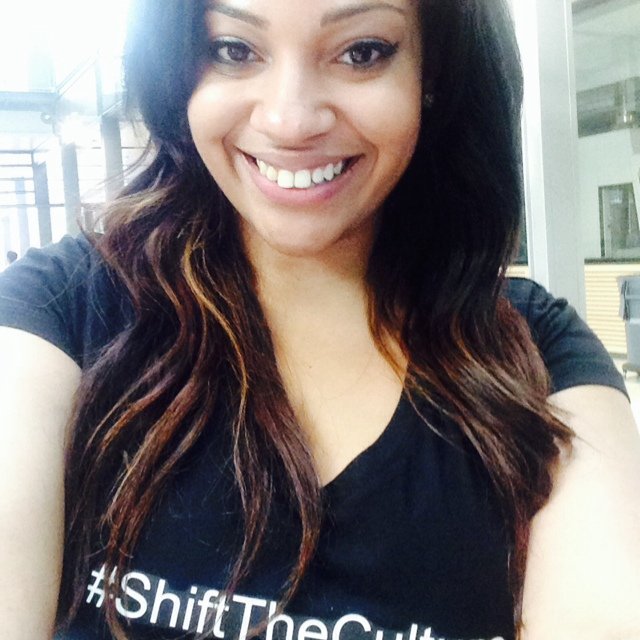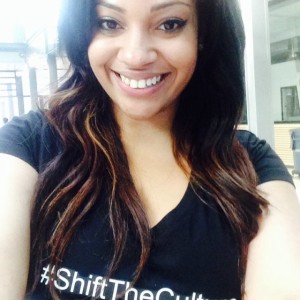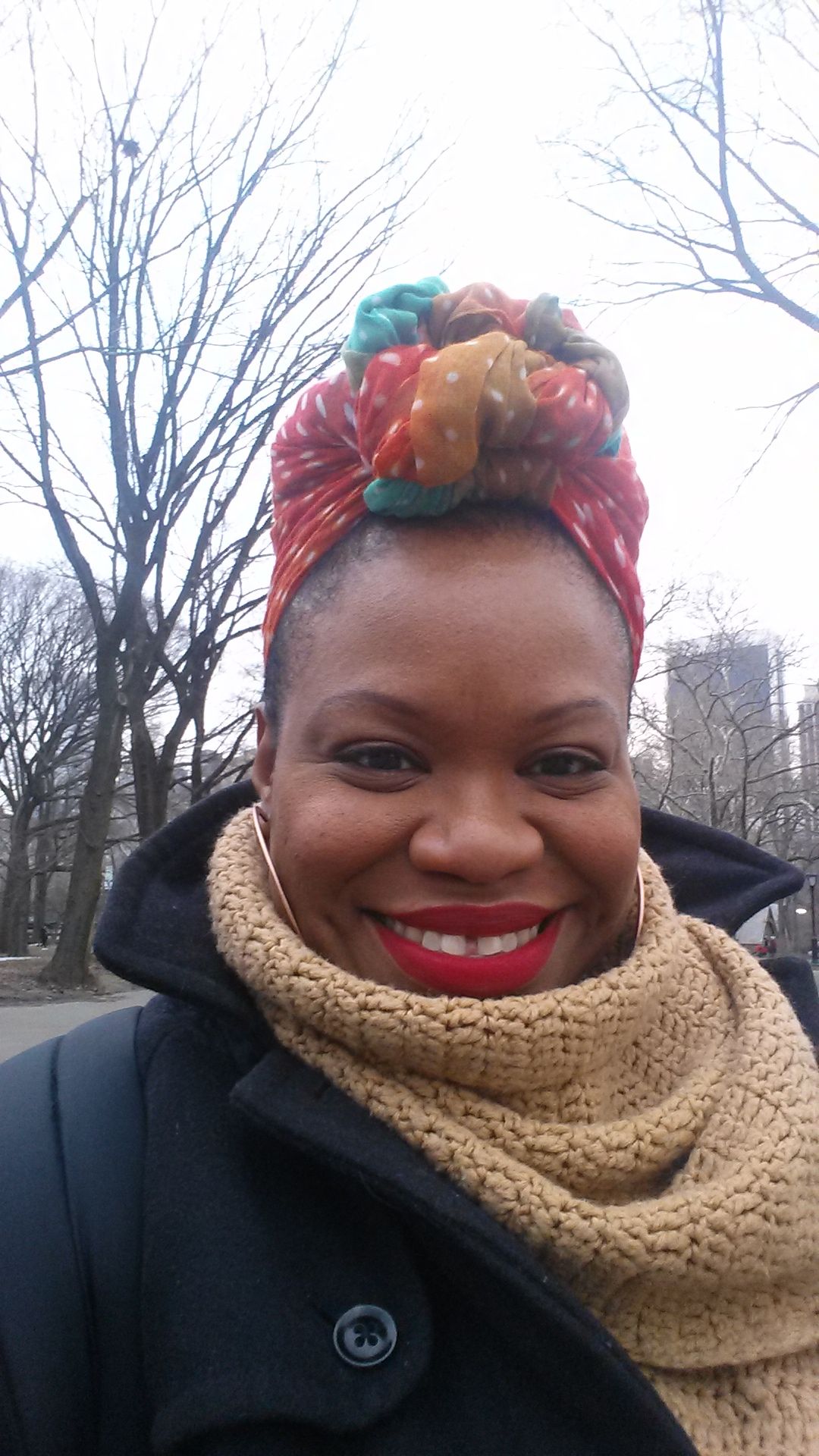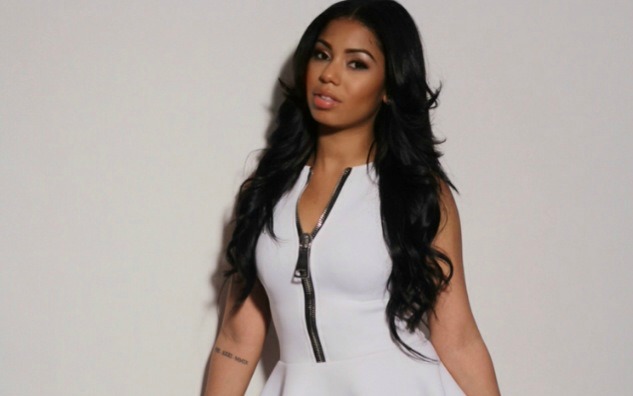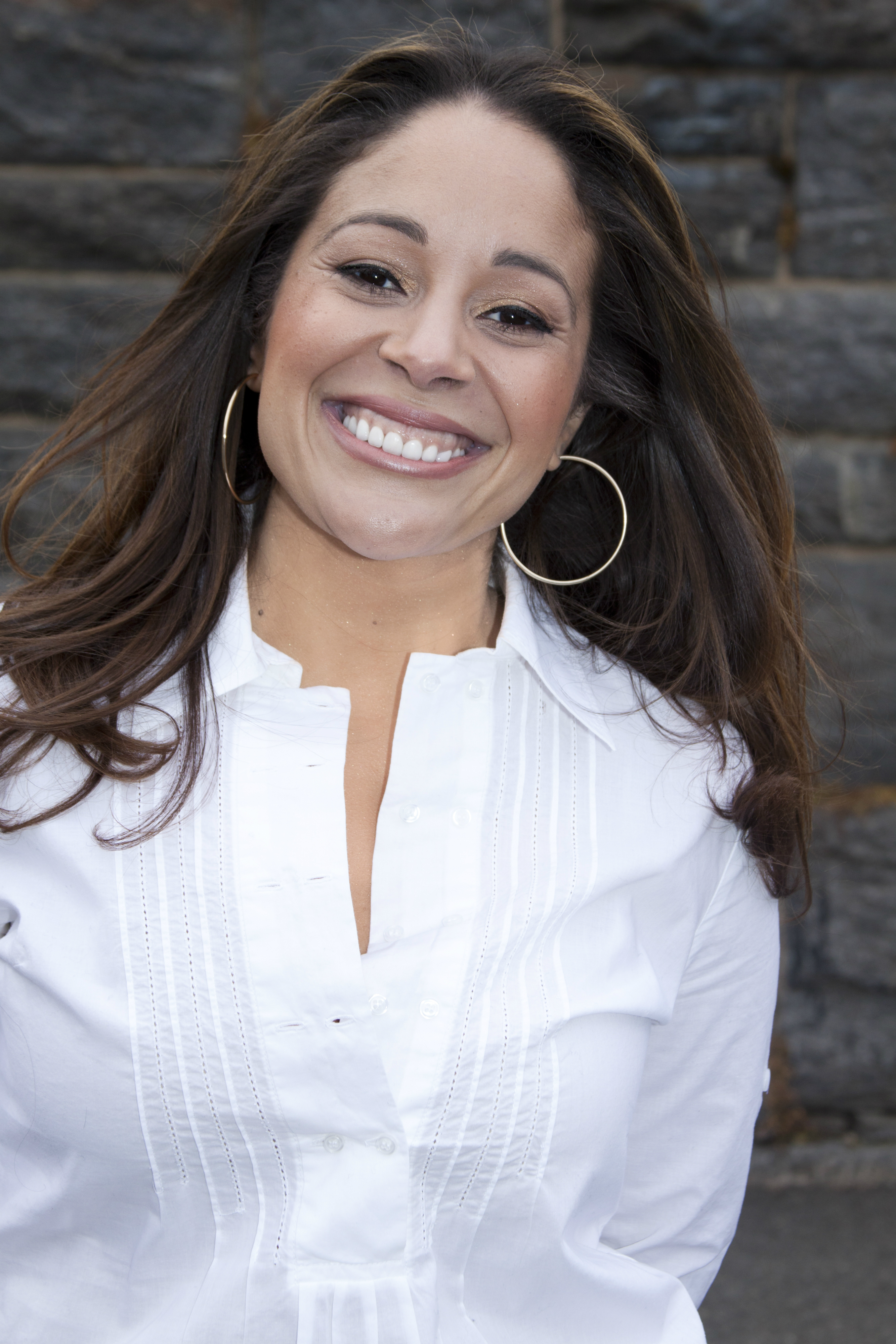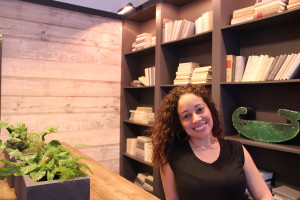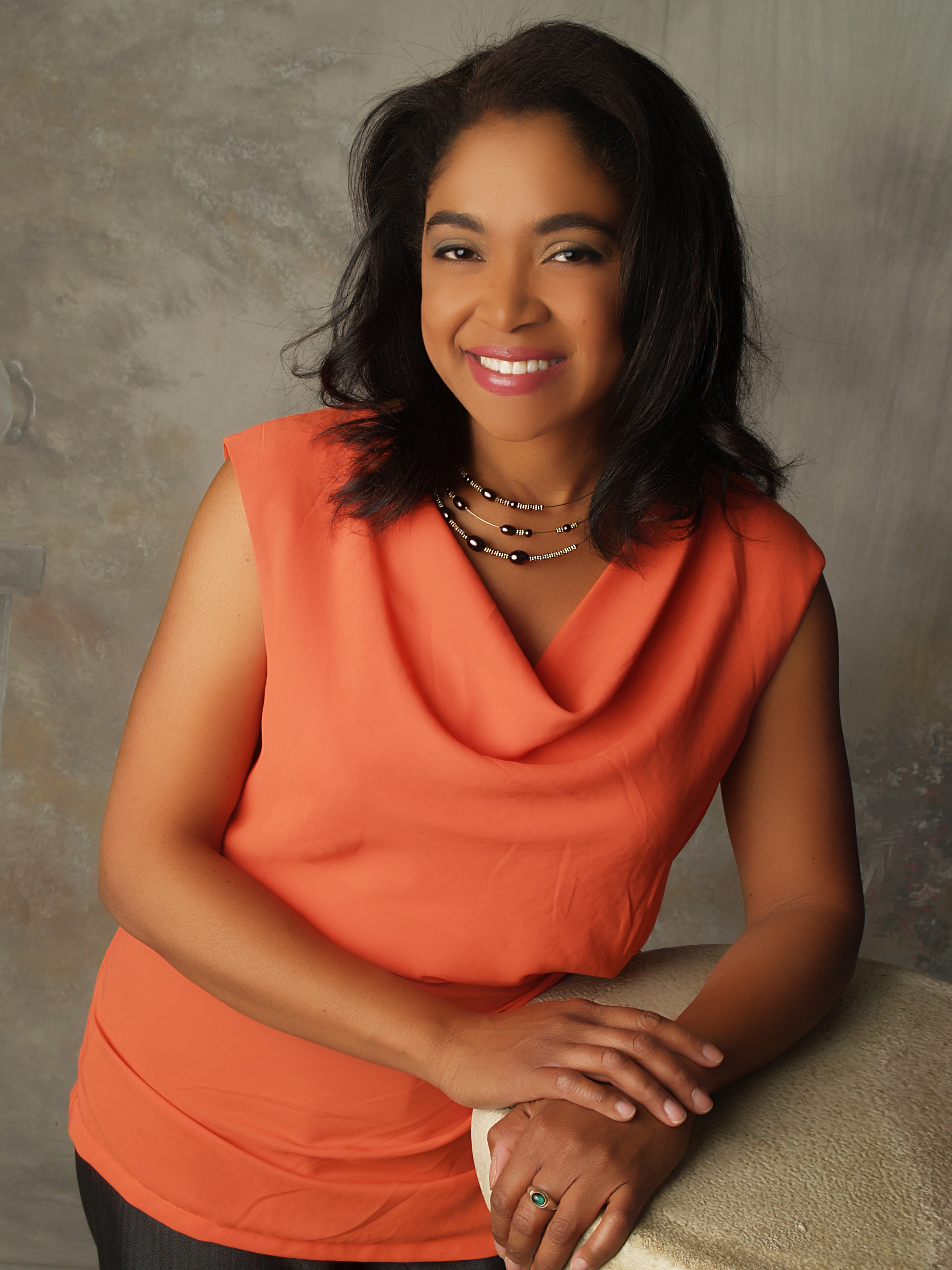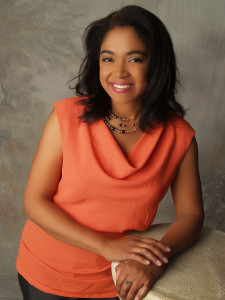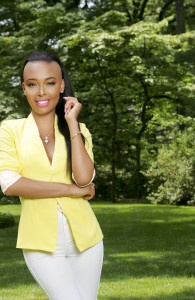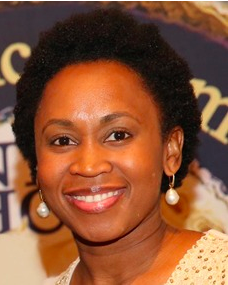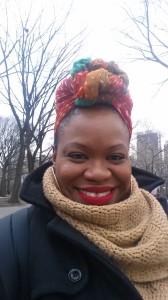
(Image: Evelyn Alvarez)
This week, we’re featuring radio show host, trainer, doula and Prom King founder Evelyn Alvarez as our Everyday Chica. The working mother spoke with Ain’t I Latina? about why she founded Prom King, creating a career that fulfilled her and why Celia Cruz is the business.
You founded Prom King, an organization that provides clothes to young men ages 10-26 for special events. What inspired you to create this organization?
A few years ago I was invited to a wedding. On the day of the wedding, my sitter canceled and I had to take my son. I rushed out to buy a suit, and when I saw the prices, I thought, ‘Damn I have one son. If I had three, somebody ain’t going or I’m going to have to make a deal with ConEd.’ The thought of that made me sad. A few months later, I had the opportunity to connect a colleague’s brother with a friend who had ties sitting in his closet. The young man received ties for school, and the donor was so pleased to have been able to pay it forward. I knew I was on to something then.
Since then, I have been blessed with donations, exposure via O, The Oprah Magazine and DNA Info, [and received] a Positive Impact Award from Hispanicize. Once you start accepting awards and shit, you gotta do the work. (Laughs.)
Totally agree! You’re an advocate for urban youth and family. In addition, you’re a mother, radio host and all-around Renaissance woman. How do you balance it all?
It’s not easy; no woman has it easy these days, right? What helps immensely is that I do what I love, and make time for it. I love being a mom, a doula, a trainer, and my radio show. I love my community and make time to use my efforts and talents to support it. Young people and urban families have unwavering support. I had jobs before where I would cry on Friday because Saturday meant Sunday and Sunday meant going back to a dreaded work environment. I feel blessed not to have that anymore. Sometimes that means a little less sleep and a little more Bustelo or Starbucks, but that’s the grind. It also helps to have folks who believe in you and your mission, and help, listen, pick you up when you feel exhausted or stuck. No person is an island, so assembling the right team is crucial.
When we met we clicked because you’re from Honduras and, more so, Garifuna! How do you identify: Garifuna, Honduran, Afro-Latina, or use another term to describe your race and/or ethnicity?
I am a Black woman. I am a Black woman who is Garifuna and speaks Spanish. My family is from Guatemala and I love to share that. I even have a quetzal tattoo.
What is your earliest memory of identifying as Afro-Latina/Blatina/Latinegra, etc? How did you come to identify as such?
I guess when I went to school. I learned Spanish first, and didn’t speak English until I went to school. So I have always known. It was different growing up in Brooklyn in the ‘80s and ‘90s. Most people only knew Black Spanish speakers to be Panamanian, so explaining that my family is from Guatemala was met with ‘What?! My neighbor is from there and they look Mexican.’ Nah, girl! Then they would come over, and meet my mamí who speaks Spanish, and the fam, and watch Sabado Gigante with us. They would be like ‘Ohh… ok.’ I always felt comfortable with Black people PERIOD. My best friend is Guyanese, and we would have these giggle fests about peas and rice vs. rice and beans. I learned early that his connection to the Diaspora was bigger than the individual space we came here from. That being said, I do have the quetzal on my leg. Chapina, baby!
Which Latina matriarch do you most identify with and why?
Probably Celia Cruz. She is Black! Unapologetically. I get my whole entire life watching YouTube videos of her and the Fania All Stars performing in Zaire. Her rich voice, glamorous outfits… girl, bye! Plus she had so much longevity in her career. She was rockin’ out way into her 70’s. I love that! It’s one of the things I love best about the culture. It’s not uncommon to see three generations partying together happily. My radio show is called The Ripeness, in celebration of the idea that people’s peak time can last way, WAY past 30, 35, 40. It’s a state of mind.
Who inspires you?
My mamí and my son. Born two days apart, my mamí is the epitome of ‘never let ‘em see you sweat.’ Her key mottos were ‘todo tiene solucion’ (everything has a solution) and ‘al mal tiempo, buena cara’ (to bad times, good face). She has taught me that with creativity in your process, red lipstick and faith most things are bearable. As per the spiritual: Trouble don’t last always.
My son has changed my entire life! I literally work to feed him, and I had to find work that fed ME emotionally, so I could be the kind of mom I wanted to be. We aren’t perfect, but… we love. And I don’t quit. I joke to my homies that he is the longest relationship I ever had with a male. HAAAA! Seriously, he has pretty much taught me what I know to be true about life and love: To have commitment, faith, own up to mistakes, the benefits of a glass of wine or two before reacting, to make efforts to operate at your optimal level daily, to apologize and to pray. It works.
You can follow the Prom King movement by visiting the site, or following on Twitter and Instagram @promkingNYC .
